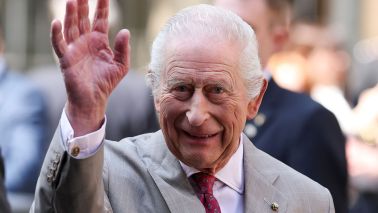The BBC has been having a good pandemic. Stuck at home, a generation raised on podcasts and YouTube has discovered the comfort of a radio that babbles quietly in the corner. The concerts from the empty Wigmore Hall, streamed live on YouTube once a day, have been the first classical concerts of my life that could honestly be described as cultural events. And in the initial terror of the disease’s spread, everyone reverted to watching the BBC simply to find out what would happen next. Perhaps our vaunted passion for fake news was only a fad of convenience given that, when our lives depended on it, we really listened to Auntie.
Nestled quietly between the pips and the press conferences I found The New Anatomy of Melancholy, a 12-part series asking what Robert Burton’s 1,000-page Anatomy of Melancholy has to teach us today. It was a bold and noble piece of commissioning, one whose drab execution served as a frustrating reminder of how cultural broadcasting, which aims to be both stimulating and informative, often ends up being neither.
Why not mention the passages about werewolves, demons, enemas and haemorrhoids?
Burton’s Anatomy is one of the strangest books ever written. Ostensibly a tract on the diagnosis, prevention and cure of melancholy, it is more like a lunatic encyclopaedia whose organising principle is the nature of human misery. In this programme, unfortunately, Burton’s dizzying masterpiece is beige-washed and resold as ‘a prototype self-help book’. And it gets worse. When Burton writes: ‘I write of melancholy by being busy to avoid melancholy,’ the statement is glossed as proof that for Burton writing was a ‘personal form of therapy’.
Throughout, whenever something lucid and poetic from the Anatomy is read out, a presenter’s voice chimes in to explain that he has, in fact, said something entirely different about bipolar disorder.








Comments
Join the debate for just £1 a month
Be part of the conversation with other Spectator readers by getting your first three months for £3.
UNLOCK ACCESS Just £1 a monthAlready a subscriber? Log in